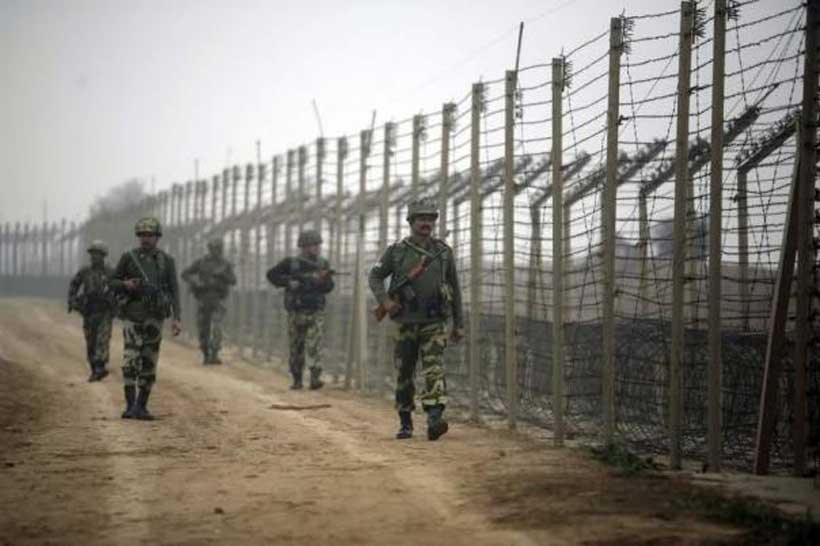The Rome Statute established four core international crimes: genocide, crimes against humanity, war crimes, and the crime of aggression. Under the Rome Statute, the International Criminal Court (ICC) can only investigate and prosecute the four core international crimes in situations where states are “unable” or “unwilling” to do so themselves; the jurisdiction of the court is complementary to jurisdictions of domestic courts. The court has jurisdiction over crimes only if they are committed in the territory of a state party or if they are committed by a national of a state party.
India is a very straight forward case exactly meeting the criteria. A curfew since 5 August 2019, such a long curfew has made people starved to death, lack of medicines makes the people die, lack of food, and makes the people die. No electricity, No fuel, No drinking water, no sanitation services, all lead to the death of many people. It is a form of genocide.
Almost one million Army in Kashmir is engaged in crimes against humanity. They harass, kill, torture, kidnap, and rape the Kashmiri people. Draconian law allows the use of excessive force against the civilian unarmed people of Kashmir. They can suspect anybody and can detain, kill or execute without any court trial. Extrajudicial killings are a common practice in Kashmir since 5 August 2019. Shot-at-spot has been witnessed and reported by locals, without any warning or explanation.
India is committing all types of war-crimes in Kashmir. Media has been harassed and all foreigners and visitors have been evacuated from Kashmir. Internet and mobile services have been suspended to hide war-crimes in Kashmir. Kashmir has been sealed and disconnected from the rest of the world. Excessive use of force against unarmed civilians is the biggest war-crime.
Kashmir is a disputed territory as per UN resolution. At the time of Independence from British rule in 1947, all areas with Muslim Majority were supposed to be part of Pakistan and all areas with Hindu majority were supposed to be part of India. Kashmir was the Muslim majority with 90% of its population as Muslims, who were supposed to be part of Pakistan principally. But the Indian Army entered into Kashmir and occupied part of Kashmir by force. Upon resistance from the local Kashmiri people and Pakistan, India approached the United Nation. UN resolution was passed to hold the plebiscite in Kashmir and allowed the people of Kashmir the right of self-determination to decide whether they want to join India or Pakistan. But, India has been delaying the implementation of the UN Resolution. For 7 decades, India used all tactics and force to suppress Kashmiri people and tried to change demography. But sending fresh troops equipped with latest lethal weapons and draconian law on 5 August is considered aggression in Kashmir.
UN Security Council has discussed the Kashmir issue recently and showed their deep concerns on Indian accession on 5 August. The international community has condemned and rejected the Indian narrative of Kashmir and supported & stood with Pakistan’s narrative. Widespread agitations, protests, demonstrations in almost all big cities around the globe have been witnessed.
Pakistan stands with the world to condemn Indian atrocities and brutalities in Kashmir. Pakistan also condemns along with the rest of the world India for alleged war crimes, genocide, aggression, and crimes against unarmed civilians in Kashmir. Pakistan stands with the international community to force India to respect the UN, to respect the UN Charter, to respect Humanity. Pakistan strongly supports the demand of Kashmiri people to lift curfew in Kashmir, to leave Kashmir, to hold plebiscite immediately. Pakistan will stand with any country, nation or individual, who so ever help and rescue the 15 million innocent people of Kashmir. Pakistan reinforces the struggle of the civilized world to implement the UN resolution and resolve the Kashmir issue diplomatically and politically and peacefully. Pakistan will keep its moral obligation to extend its diplomatic and political support to the people of Kashmir till the UN resolution is implemented in its true spirit.
Pakistan was a victim of the Afghan war for 4 decades and knows the consequences of War. Pakistan is a peace-loving nation and believes in diplomacy and negotiation. Pakistan is a responsible state and understands the consequences of escalation as both India and Pakistan are nuclear states. Pakistan has observed restrains and patience in February this year and will also try its best to avert any war-like situation. But if any misadventure by India has imposed on Pakistan a war-like situation, Pakistan reserved the right to retaliate the way and manner which suits Pakistan. It is the time when the UN and international community force India to respect the UN, respect Humanity and Respect Peace.


